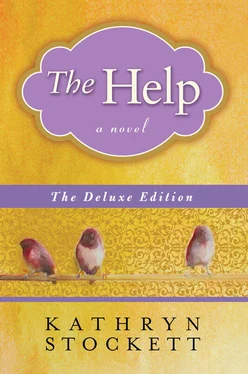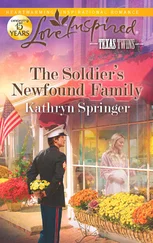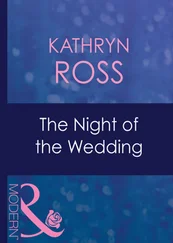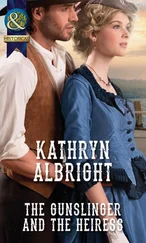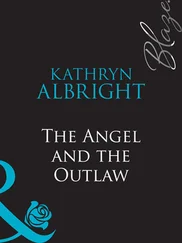“Just not ready. Not after what happened.”
I stare at him. “You want me to guess?”
“Me and Patricia van Devender. We got engaged last year and then . . . I thought you knew.”
He sinks down in a rocking chair. I don’t sit next to him. But I don’t tell him to leave either.
“What, she ran off with someone else?”
“Shoot.” He drops his head down into his hands, mumbles, “That’d be a goddamn Mardi Gras party compared to what happened.”
I don’t let myself say to him what I’d like to, that he probably deserved whatever she did, but he’s just too pathetic-looking. Now that all his good ole boy, tough bourbon talk has evaporated, I wonder if he’s this pathetic all the time.
“We’d been dating since we were fifteen. You know how it is, when you’ve been steady with somebody that long.”
And I don’t know why I admit this, except that I simply have nothing to lose. “Actually, I wouldn’t know,” I say. “I’ve never dated anybody.”
He looks up at me, kind of laughs. “Well, that must be it, then.”
“Be what?” I steel myself, recalling fertilizer and tractor references.
“You’re . . . different. I’ve never met anybody that said exactly what they were thinking. Not a woman, anyway.”
“Believe me, I had a lot more to say.”
He sighs. “When I saw your face, out there by the truck . . . I’m not that guy. I’m really not such a jerk.”
I look away, embarrassed. It’s just starting to hit me what he said, that even though I’m different, maybe it’s not in a strange way or an abnormal, tall-girl way. But maybe in a good way.
“I came by to see if you’d like to come downtown with me for supper. We could talk,” he says and stands up. “We could . . . I don’t know, listen to each other this time.”
I stand there, shocked. His eyes are blue and clear and fixed on me like my answer might really mean something to him. I take in a deep breath, about to say yes—I mean, why would I of all people refuse—and he bites his bottom lip, waiting.
And then I think about how he treated me like I was nothing. How he got shit-dog drunk he was so miserable to be stuck with me. I think about how he told me I smelled like fertilizer. It took me three months to stop thinking about that comment.
“No,” I blurt out. “Thank you. But I really can’t imagine anything worse.”
He nods, looks down at his feet. Then he goes down the porch steps.
“I’m sorry,” he says, the door to his car open. “That’s what I came to say and, well, I guess I said it.”
I stand on the porch, listening to the hollow sounds of the evening, gravel under Stuart’s shifting feet, dogs moving in the early darkness. For a second, I remember Charles Gray, my only kiss in a lifetime. How I’d pulled away, somehow sure the kiss hadn’t been intended for me.
Stuart gets in his car and his door clicks shut. He props his arm up so his elbow pokes through the open window. But he keeps his eyes turned down.
“Just give me a minute,” I holler out to him. “Let me get my sweater.”
NO ONE TELLS us, girls who don’t go on dates, that remembering can be almost as good as what actually happens. Mother climbs all the way to the third floor and stands over me in my bed, but I act like I’m still asleep. Because I just want to remember it awhile.
We’d driven to the Robert E. Lee for dinner last night. I’d thrown on a light blue sweater and a slim white skirt. I’d even let Mother brush out my hair, trying to drown out her nervous, complicated instructions.
“And don’t forget to smile. Men don’t want a girl who’s moping around all night, and don’t sit like some squaw Indian, cross your—”
“Wait, my legs or my ank—”
“Your ankles. Don’t you remember anything from Missus Rheimer’s etiquette class? And just go ahead and lie and tell him you go to church every Sunday, and whatever you do, do not crunch your ice at the table, it’s awful. Oh, and if the conversation starts to lag, you tell him about our second cousin who’s a city councilman in Kosciusko . . .”
As she brushed and smoothed and brushed and smoothed, Mother kept asking how I’d met him and what happened on our last date, but I managed to scoot out from under her and dash down the stairs, shaking with wonder and nervousness of my own. By the time Stuart and I walked into the hotel and sat down and put our napkins in our lap, the waiter said they’d be closing soon. All they’d serve us was dessert.
Then Stuart had gotten quiet.
“What . . . do you want, Skeeter?” he’d asked and I’d sort of tensed up then, hoping he wasn’t planning on getting drunk again.
“I’ll have a Co-Cola. Lots of ice.”
“No.” He smiled. “I mean . . . in life. What do you want?”
I took a deep breath, knowing what Mother would advise me to say: fine, strong kids, a husband to take care of, shiny new appliances to cook tasty yet healthful meals in. “I want to be a writer,” I said. “A journalist. Maybe a novelist. Maybe both.”
He lifted his chin and looked at me then, right in the eye.
“I like that,” he said, and then he just kept staring. “I’ve been thinking about you. You’re smart, you’re pretty, you’re”—he smiled—“tall.”
Pretty?
We ate strawberry soufflés and had one glass of Chablis apiece. He talked about how to tell if there’s oil underneath a cotton field and I talked about how the receptionist and I were the only females working for the paper.
“I hope you write something really good. Something you believe in.”
“Thank you. I . . . hope so too.” I don’t say anything about Aibileen or Missus Stein.
I haven’t had the chance to look at too many men’s faces up close and I noticed how his skin was thicker than mine and a gorgeous shade of toast; the stiff blond hairs on his cheeks and chin seemed to be growing before my eyes. He smelled like starch. Like pine. His nose wasn’t so pointy after all.
The waiter yawned in the corner but we both ignored him and stayed and talked some more. And by the time I was wishing I’d washed my hair this morning instead of just bathed and was practically doubled over with gratefulness that I’d at least brushed my teeth, out of the blue, he kissed me. Right in the middle of the Robert E. Lee Hotel Restaurant, he kissed me so slowly with an open mouth and every single thing in my body—my skin, my collarbone, the hollow backs of my knees, everything inside of me filled up with light.
ON A MONDAY AFTERNOON, a few weeks after my date with Stuart, I stop by the library before going to the League meeting. Inside, it smells like grade school—boredom, paste, Lysoled vomit. I’ve come to get more books for Aibileen and check if anything’s ever been written about domestic help.
“Well hey there, Skeeter!”
Jesus. It’s Susie Pernell. In high school, she could’ve been voted most likely to talk too much. “Hey . . . Susie. What are you doing here?”
“I’m working here for the League committee, remember? You really ought to get on it, Skeeter, it’s real fun! You get to read all the latest magazines and file things and even laminate the library cards.” Susie poses by the giant brown machine like she’s on The Price Is Right television show.
“How new and exciting.”
“So, what may I help you find today, ma’am? We have murder mysteries, romance novels, how-to makeup books, how-to hair books,” she pauses, jerks out a smile, “rose gardening, home decorating—”
“I’m just browsing, thanks.” I hurry off. I’ll fend for myself in the stacks. There is no way I can tell her what I’m looking for. I can already hear her whispering at the League meetings, I knew there was something not right about that Skeeter Phelan, hunting for those Negro materials . . .
Читать дальше
